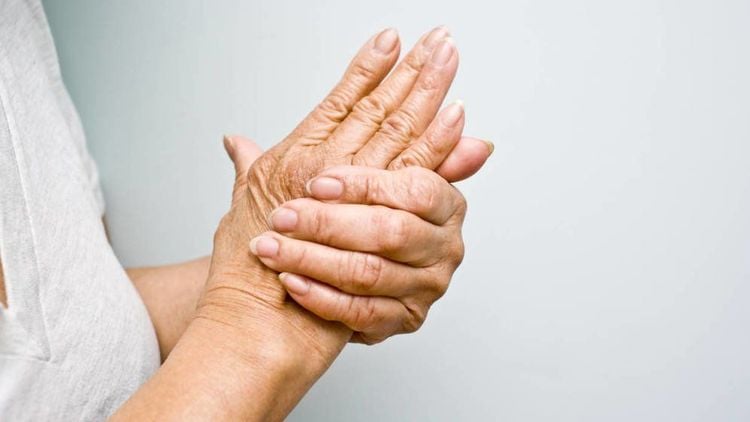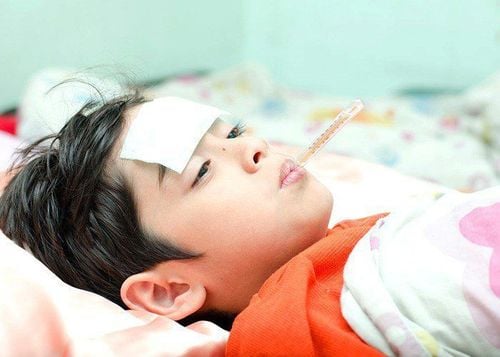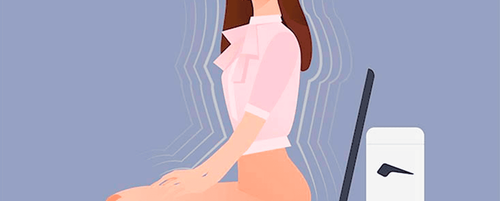A fever at night makes it difficult for you to sleep, and fall asleep, and affects your mood the next day. If this condition persists, it can cause the patient to feel tired, have muscle aches, and feel sleepy. A child's fever at night also causes a lot of worry for parents.
1. Fever at Night
Normally, a healthy person's body temperature ranges from 36.5 to 37 degrees Celsius, while children may have slightly higher temperatures. However, when the body temperature increases by about 1-2 degrees Celsius, it is considered a fever.
Fever is a body's response to the attack of pathogens. This condition may be accompanied by symptoms such as chills and body aches. However, a fever at night can be a sign of an underlying medical condition, negatively affecting the quality of sleep and daily activities of the patient. Especially in young children, a fever at night can be life-threatening. Therefore, parents should not be subjective but should carefully monitor the symptoms to take appropriate measures.
2. Why Do You Often Have a Fever at Night?
Here are some reasons why you or your child may have a fever at night, as explained by experts:
2.1. Allergic Reactions
According to many reports, a fever at night is often caused by drug allergy. Besides therapeutic effects, drugs can also cause side effects or interact with other drugs. This can lead to allergic reactions in patients.
Some symptoms of this condition include High-Grade Fever, rash, and swelling. If the condition becomes severe, seek medical attention immediately.
2.2. Urinary Tract Infection
If you experience Painful Urination along with a fever at night, it could be a warning sign of a urinary tract infection. This condition should not be ignored and should be treated with a doctor's prescription.
2.3. Respiratory Tract Infection
A fever at night is one of the typical signs of a respiratory tract infection. In this case, the patient may have an infection of the esophagus, larynx, or bronchi. The patient should be prescribed medication to treat the disease completely.
2.4. Skin Infection
According to experts, any infection can cause a high fever, especially skin infections. Treating skin infections early will stop the fever and prevent other health risks.
2.5. Inflammation
Inflammation causes the body temperature to increase, resulting in a High-Grade Fever that can be difficult to reduce. Therefore, the best course of action is to take the patient to the hospital for testing to diagnose the cause and receive appropriate treatment.
2.6. Connective Tissue Disorders
Diseases of the connective tissue, such as rheumatoid arthritis, can cause fever in patients. Additionally, patients may experience symptoms such as joint pain, numbness, and tingling in the limbs.

2.7. Stress
Fatigue and stress during the day can lead to night fevers. You need to adjust your lifestyle and diet to prevent fatigue and a weakened immune system.
3. How to Manage a Fever at Night
If a night fever is not treated promptly, it can pose significant health risks, especially for young children. According to experts, when someone has a night fever, you should reduce the fever before determining the cause. Some temporary methods to reduce fever include:
- Using Fever Reducer in appropriate doses for each individual.
- Fever-reducing patches
- Measuring body temperature every 15 minutes at night and every 30 minutes during the day. This will help you monitor the patient's body temperature most accurately, allowing you to find a timely and appropriate method to reduce fever.
- Applying warm compresses to the patient to lower body temperature.
- Using rectal suppositories and wiping the body with a warm towel can help reduce the fever.
- Absolutely avoid using cold water or ice for compresses. This will not reduce the fever but can instead cause the patient to catch a cold.
- Allow the patient to wear loose-fitting clothing to help with sweating.
- Keep doors and windows open to ensure ventilation.
- Encourage the patient to drink plenty of fluids and supplement with foods rich in vitamins and minerals to boost the immune system and prevent dehydration from high fever.
- Absolutely do not give children over-the-counter fever reducer of unknown origin. This can increase the risk of antibiotic resistance in children.
- If the patient's fever does not Decrease, or if they experience additional symptoms such as seizures, seek medical attention immediately.

Hopefully, the information provided has helped readers answer the question "Why do you often have a fever at night?". At the same time, you will have measures to reduce fever safely and correctly.
To arrange an appointment, please call HOTLINE or make your reservation directly HERE. You may also download the MyVinmec app to schedule appointments faster and manage your reservations more conveniently.













